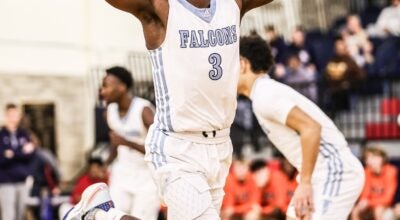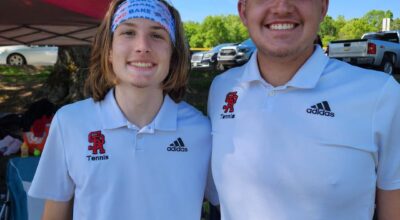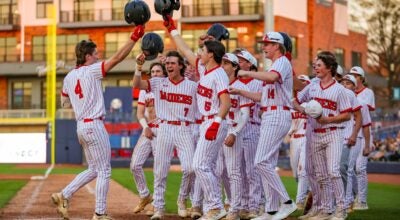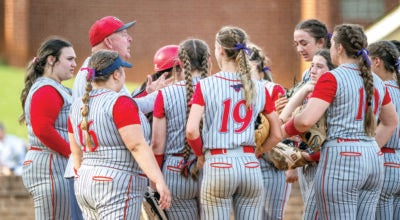Bill Gillispie: Salisbury man was baseball pioneer
Published 12:00 am Tuesday, March 29, 2011
By Mike London
mlondon@salisburypost.com
It was the summer of 1964, and the white boys behind the outfield fence at the Hickory Fairgrounds were amusing themselves by chucking pebbles at the black teens patrolling left and center field for Gastonia American Legion Post 23.
Some pebbles were on target. The missiles stung, and the smaller of the two outfielders also had the shorter fuse.
“Moe, we gotta do something!” Willie “The Jet” Gillispie yelled at his teammate Elmore “Moe” Hill.
Hill was a lot bigger, and he also was older and wiser. He calmly answered back, “Play ball, Jet. Just play ball.”
Gillispie has lived in Salisbury for 18 years. He’s 62 now and answers to “Bill.” Back home in Gastonia, however, he’ll always be “Jet.”
Gillispie and Hill were the Jackie Robinsons of American Legion baseball in North Carolina. It’s nearing 50 years since they put up big numbers while facing adversity far beyond fastballs and curveballs, but Gillispie and Hill still have not been inducted into the N.C. Legion Hall of Fame.
“I’m not bitter because I’m not that kind of person,” Gillispie said. “I just feel like, in my heart, that it’s not just. I’m not saying put us in the Hall of Fame because we were the first. I’m saying put us in there because we were talented and we qualified with our play. Racial slurs, insults, and to still perform the way we did — we qualified.”
Hill and Gillispie didn’t set out to be pioneers. The first night they suited up for Gastonia Post 23, they had no clue they were groundbreakers.
They were just eager kids playing ball.
As a child, the left-handed Gillispie spent hours whacking rocks and fielding worn-out balls he bounced to himself off his grandparents’ outhouse. By the time he was 14, he’d made himself into a player.
Southern schools were segregated, and Gillispie attended Gastonia’s all-black Highland High. Highland made a run in the 1964 playoffs with Hill and Gillispie leading the charge.
In a quarterfinal win against Winston-Salem Atkins, Gillispie went 5-for-5 and Hill powered two homers. Highland was eliminated in the state semis by Greensboro Dudley despite three hits by Gillispie and a homer by Hill.
“We showed out,” Gillispie said proudly.
Post 23’s coach watched with interest. He saw serious potential and invited Gillispie and Hill to try out.
They showed up, not to be Jackie Robinsons, but because they were curious. Everyone said American Legion pitching was tougher than anything they’d ever seen. They wanted to prove they could hit it.
Hill starred from the start. Gillispie, not quite 16, rode the pine a few weeks before an injury gave him a shot in the outfield. He never returned to the bench. He stayed in the lineup the rest of 1964 — and 1965 and 1966, as well.
Gastonia fans embraced the newcomers. Legion ball was huge in those days, and thousands saw them play at Sims Legion Park. Gillispie’s teammates became buddies. They provided rides to practice.
The road was less hospitable. Gillispie and Hill were targets for verbal abuse by fans when they stepped into a batter’s box. A black cat was tossed onto the field when they played at Newton-Conover.
An opposing coach warned, “Don’t bring those two over here.” But they went, and they pounded the ball.
Gillispie batted an even .400 in three years of Legion ball — in a tough league, with a wood bat. He hit .419 his last season.
“They didn’t keep as many stats then, but I know I had 18 steals in a row and hadn’t been caught,” Gillispie said. “That’s when I stopped counting.”
Gillispie recalls ripping doubles against future big league hurlers Billy Champion (Shelby) and Dave Lemonds (Charlotte Post 9).
“Champion threw harder than anyone,” Gillispie said.
Post 9 was national runner-up in 1964 and national champ in 1965. Post 9’s toughest competition anywhere in ’65 may have come from a Gastonia team fueled by Gillispie. Lemonds’ one-hitter decided their grueling playoff series. You can guess who had the hit.
Hill,who was 6-foot-2, 190 pounds, only teamed with Gillispie in ‘64. The Baltimore Orioles signed Hill for $1,000.
Gillispie moved on to college football and baseball at Shaw. He hurt his arm on the gridiron. After that, “Jet” had to move to first base, but his heroics had only started.
Gillispie spent 10 years in the Air National Guard, serving some of that time in Japan, Taiwan and The Philippines.
From 1969-1972, he was stationed at Chanute Air Base and played in the Eastern Illinois League. Like any independent league, it was a mix of wily veterans and talented youth.
Gillispie wore the uniforms of the Champaign Eagles and Rantoul Merchants and is still remembered in Illinois because his four-year batting average was .444. Gillispie hit .509 in 1969 and also topped .500 in 1971. Twice, he led the league in homers. Three times, he won the batting title.
Gillispie’s one off year with the stick was 1970 — because he was his team’s catcher. He still made the all-star team.
The slickest pitcher Gillispie saw was Tom Fletcher, a southpaw who’d had a cup of coffee with the Detroit Tigers. Gillispie won one of his batting crowns with a 5-for-5 final day of the season against Fletcher. He recalls Fletcher tossing his glove in the air in frustration when Gillispie drove an outside curve 385 feet over the fence in left-center.
“He yelled, ‘Look out!,’ like it was coming inside,” Gillispie said with a chuckle.
Reporter Fred Kroner’s book “Catching Up” was published in 2010 to celebrate the 75th anniversary of the Eastern Illinois League. The book documents Gillispie’s records and lists him as the sixth-best in league history. What’s remarkable about that is the players ranked ahead of him spent a decade in the league.
After the service, Gillispie played and coached semipro ball in the Carolinas. His sons, Lovell and Travis, played at Gastonia high schools. Travis went on to Wingate and was a teammate of Salisbury stars Tim Still and Kirk Huffman.
Gillispie received medical training in the Air National Guard and arrived in Salisbury to work for the Veterans Administration hospital. He currently works at the outpatient clinic in Winston-Salem.
Gillispie is a baseball lifer. He enjoyed the game as player. He loves coaching more.
He does his coaching now as chairman of the Gillispie Sports baseball training and mentoring program. (Call 704-773-6140 for information.) His son Travis is president and head trainer.
“A lot of kids can’t afford the travel teams,” Gillispie explained. “We target the inner-city kids, mentor them, teach them fundamentals. It’s open to all. I love to teach the game, and that’s what we’re about.”
Gillispie said he donates proceeds to Gastonia Post 23. He’s a member, and he wants to give something back.
Hill, Gillispie’s pioneering partner, became a minor league icon, crushing 263 career homers and winning the Midwest League triple crown in 1974 as a member of the Wisconsin Rapids Twins. He never got a chance in “The Show,” but he was named the best player in Midwest League history by Baseball America. Hill has been a coach in the Baltimore Orioles farm system for years and will be with the Aberdeen IronBirds this summer.
n
The American Legion state tournament was held at Gastonia’s Sims Legion Park in 2008. Gillispie thought that might be the ideal occasion for belated recognition for the Post 23 pioneers — maybe throw out a ceremonial first pitch.
“But we never heard from anybody,” he said.
Hill had his jersey retired by Grand Rapids last June and was inducted into the Gaston County Hall of Fame in July.
That gives Gillispie hope that the youngsters who courageously roamed the outfield for Post 23 aren’t forgotten.
Gillispie is also excited that a story the Gaston Gazette’s Richard Walker wrote about his feats in Illinois was reprinted in the March/April edition of the North Carolina American Legion News.
He’s never stopped believing that one day he’ll get a phone call and hear good news from the Legion folks.
“I know we should be in the Hall,” Gillispie said quietly, but firmly. “I remember how tough it was.”





